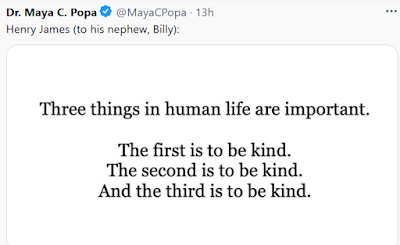When I come across a title that connects math and poetry, I become interested -- and want to read more. Google helped me discover here, in China Daily, an article featuring German professor Andrea Breard entitled "Reading numbers like poetry: A journey into ancient Chinese math." She goes on to tell about some algebraic methods that were written as poems -- the rhythm allowing easier and better memorization.
Andrea Breard is a German historian of mathematics, specializing in Chinese mathematics. Her remarks took me back to my childhood when we frequently repeated "counting rhymes" as we dressed or played or whatever. "One, Two, Buckle my shoe . . ." and "Hickory, Dickory, Dock . . . the mouse ran up the clock . . ." were frequent parts of my childhood chatter.







